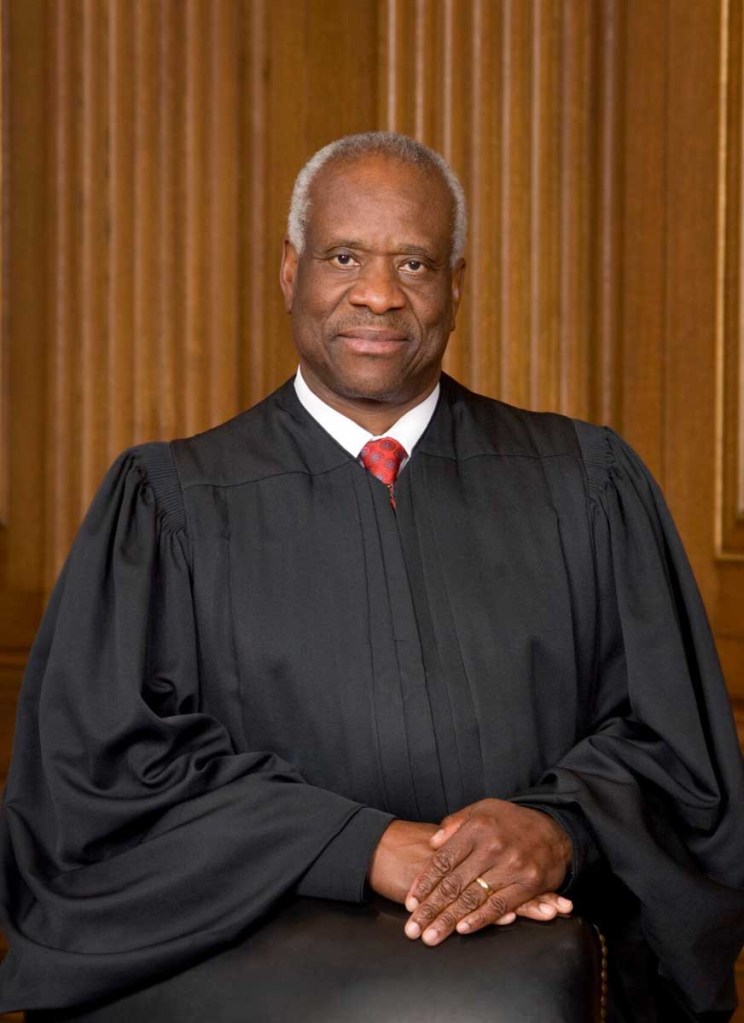Senate revives push for Clarence Thomas monument despite criticism
Published 3:45 pm Tuesday, February 14, 2023

- U.S. Supreme Court Justice Clarence Thomas Credit: Steve Petteway, Collection of the Supreme Court of the United States
ATLANTA — The Georgia Senate for a second time voted along party lines to advance a proposal for a Clarence Thomas monument on Capitol grounds.
Senate Bill 69, approved by Republicans 32-20, now heads to the House for a vote.
Thomas, a current Supreme Court Justice from the Pin Point area of Savannah, has been criticized by Democrats claiming that despite him being a Black man, his conservative approach to policy issues does not have the interest of Black Americans in some of his court decisions.
Democrat Emanuel Jones of Decatur said Thomas is a controversial figure in the Black community, stemming from his position against affirmative action, a policy aimed to increase workplace and educational opportunities for unserved communities and minorities.
“We are not bashing his pristine accomplishments. We are simply explaining to you how the action this man has taken over this service and what that has been on all of us,” Jones said.
A petition was launched on MoveOn in May urging Thomas to resign or else be impeached, stating he “has shown he cannot be an impartial justice.” As of Aug. 2, the petition was reaching 1.25 million signatures.
Referencing Thomas’ June 24 vote to overturn Roe v. Wade, the petition also indicates that Thomas engaged in a conflict of interest when he was the lone vote against a Supreme Court decision to block former Pres. Donald Trump’s request for his presidential records regarding the Jan. 6, 2021, attack on the U.S. Capitol to be turned over to the committee investigating the attack.
According to evidence received by the House Committee investigating the Jan. 6 insurrection, Ginni Thomas, Thomas’ wife, pushed efforts to overturn election results.
Democrat Sen. Nikki Merritt said Thomas should not yet have a monument since Thomas’s legacy has not yet ended.
“Investigations are still ongoing,” said Merritt, citing Thomas’ wife’s alleged encouragement of the Jan. 6 Capitol insurrection to overturn President Joe Biden’s presidential victory. “This is not the time to consider establishing a permanent monument to Justice Thomas. This is not the type of shame we want to enshrine on Capitol grounds and at minimum, this bill should be tabled until such time that Justice Thomas and his wife are cleared of collaboration in this dark chapter of our history.”
But Republican Sen. Jason Anavitarte of Dallas refuted Merritt’s comments stating that the statute is not of Thomas’ wife and that Thomas has not been charged or indicted for any crimes.
The initial proposal, SB 326, passed in the Senate along party lines 32-21 in February 2022. Though the bill was favorably reported out of a House committee 10 days later, the bill did not make it to the floor for a House vote before the legislative session came to an end in April.
Savannah Republican Sen. Ben Watson, who sponsored the bills, said the proposal is personal to him, having known Thomas’s mother for 30 years. Watson told Thomas’s story of being raised in a fatherless home and being homeless, to ultimately working his way up to his nomination to Supreme Court Justice in 1991 by then-President George Bush.
“This native son of Georgia deserves a place of honor and recognition on our capitol grounds,” Watson said. “A place where future generations of Georgians can learn valuable lessons from his legacy and gain inspiration to believe that their dreams are attainable too, regardless of the circumstances to which they are born.”
Lithonia Sen. Tonya Anderson, a Democrat, suggested that a monument instead be erected in Thomas’s hometown of Pin Point. Other Democrat senators spoke against Thomas’s actions as a Supreme Court Justice.
Atlanta Sen. Nan Orrock, a Democrat, referenced Thomas’s vote in 2020 to overturn federal abortion rights and Thomas’s implications that states should follow suit with same-sex marriages.
“His service is problematic. There’s a big cloud over his service,” she said.
Other namesake monuments at the state Capitol include Confederate leaders, Martin Luther King Jr. and women’s suffrage activist Mary Latimer McClendon. Opponents of the monument have argued that most monuments are erected after someone dies, or at least upon retirement. Former president and former Georgia Senator Jimmy Carter, whose legacy has also been met with resistance, is the only living person to have a monument at the state Capitol.
“…There’s citizens, even members of this body that take issue with his policy, perhaps when [Carter] was governor or president of these United States that respect that history in this body,” Anavitarte said.
The statue, if approved, would be funded through private donations.





